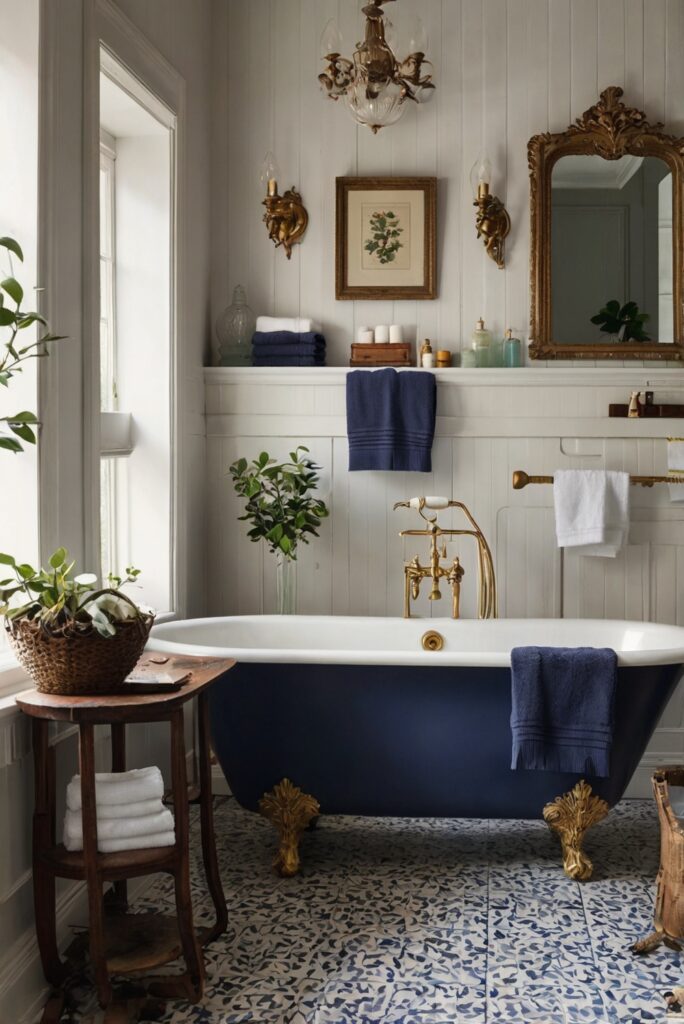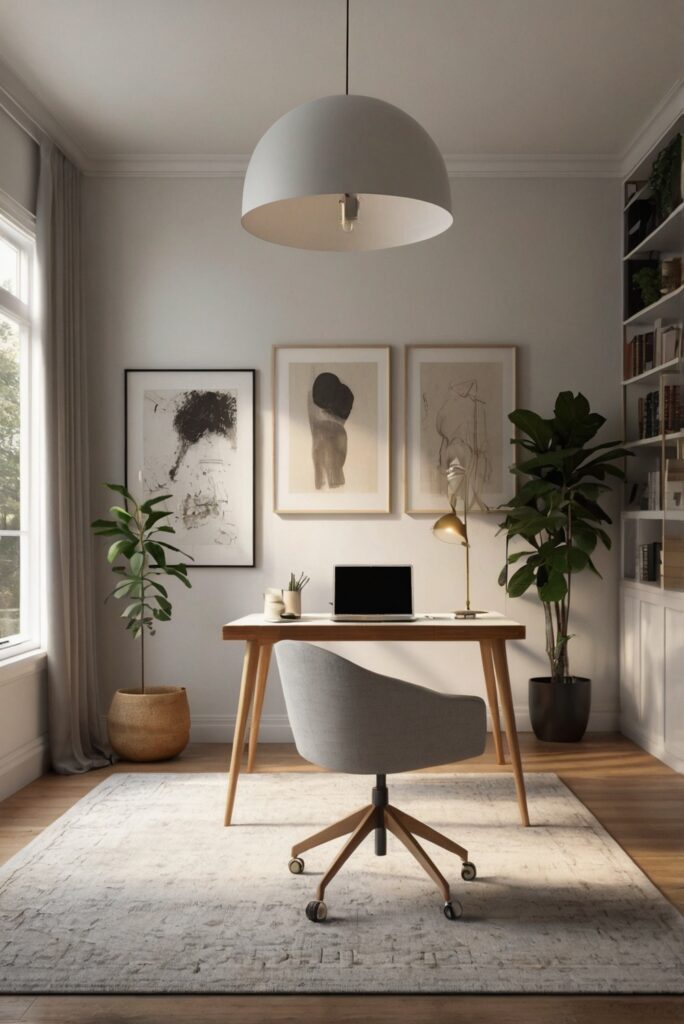When designing a home office library, selecting the perfect lighting is essential for creating a cozy and productive space. Discover expert tips for choosing the right lighting options.
How to Choose the Right Lighting for a Home Office Library?
To choose the right lighting for your home office library, consider a mix of task lighting and ambient lighting. Task lighting, such as desk lamps or reading lights, helps with focused activities like reading or working. Ambient lighting, like overhead or wall-mounted fixtures, provides overall illumination to the space. Opt for adjustable or dimmable lights to control the intensity based on your needs. Natural light is also important, so positioning your work area near a window can be beneficial. Make sure to choose light fixtures that complement the interior design of your home office library for a cohesive look.
When it comes to home decorating and interior design, lighting plays a crucial role in setting the mood and enhancing the functionality of a space. Proper lighting not only improves the aesthetics but also impacts productivity and comfort in a home office library. To achieve a well-designed space, consider the placement of lighting fixtures to ensure even illumination throughout the room. Additionally, choose light sources that provide a balance between functionality and style, highlighting the design elements of your home decor.
In terms of color matching painting and primer paint for walls, ensure that the lighting in your home office library complements the paint colors used on the walls. Proper lighting can enhance the color scheme, making the space appear more visually appealing. Experiment with different light temperatures and brightness levels to find the perfect match for your interior design. Consider consulting with interior designers or experts in kitchen designs and living room interiors for professional advice on lighting solutions tailored to your specific needs.
In summary, when decorating interiors and planning the layout of your home office library, prioritize lighting as a key element of design. Pay attention to the functionality, aesthetics, and overall ambiance that the right lighting fixtures can bring to your space. With the proper mix of task and ambient lighting, you can create a well-lit home office library that is both visually pleasing and conducive to productivity.
Consider the Function of the Space:
When choosing the right lighting for your home office library, it is crucial to consider the function of the space. **A home office library is a multifunctional area where you will be working, reading, and possibly relaxing.** Therefore, you need to ensure that the lighting you choose can accommodate these various activities. Task lighting, ambient lighting, and accent lighting are all essential in creating a well-lit and functional home office library.
Assess Natural Light:
Natural light is a key factor to consider when selecting lighting for your home office library. **Natural light not only brightens up the space but also has a positive impact on your mood and productivity.** Position your desk or reading area near windows to take advantage of natural light during the day. Additionally, consider using sheer curtains or blinds to control the amount of natural light entering the room.
Choose the Right Bulbs:
The type of bulbs you use in your home office library can significantly impact the ambiance and functionality of the space. **LED bulbs are energy-efficient, long-lasting, and provide bright, focused light ideal for tasks such as reading and working.** Consider the color temperature of the bulbs as well; cooler temperatures (5000-6500 Kelvin) are suitable for task lighting, while warmer temperatures (2700-3000 Kelvin) create a cozy atmosphere for relaxation.
Consider the Room Layout:
When selecting lighting for your home office library, consider the room layout and how the lighting fixtures will complement the space. **Ensure that the lighting is evenly distributed throughout the room to avoid glare or shadows.** Use a combination of overhead lighting, task lighting, and accent lighting to create a balanced and inviting atmosphere.
Choose Adjustable Lighting Fixtures:
To cater to the different activities you will be doing in your home office library, opt for adjustable lighting fixtures. **Adjustable desk lamps, floor lamps, and wall sconces allow you to direct light where it is needed most.** This flexibility is especially useful when switching between tasks that require focused lighting and activities that call for a softer, ambient glow.
In conclusion, choosing the right lighting for your home office library involves considering the function of the space, assessing natural light, selecting the right bulbs, considering the room layout, and choosing adjustable lighting fixtures. By following these guidelines and incorporating the appropriate lighting elements, you can create a well-lit, functional, and inviting home office library that enhances your productivity and enjoyment of the space.
1. What are the key factors to consider when choosing lighting for a home office library?
When selecting lighting for a home office library, it is crucial to consider factors such as the type of activities that will take place in the space, the size of the room, the natural light available, and personal preferences for ambiance. Task lighting, such as desk lamps or adjustable floor lamps, can provide focused illumination for reading or working at a desk, while ambient lighting, such as overhead fixtures or wall sconces, can create a warm and inviting atmosphere in the room.
2. How can natural light be utilized effectively in a home office library?
Natural light is an excellent source of illumination for a home office library, as it can help reduce eye strain and create a more comfortable environment for reading and working. To make the most of natural light in a home office library, consider positioning desks or reading chairs near windows to take advantage of the natural light. Additionally, using window treatments such as sheer curtains or blinds can help regulate the amount of light entering the room and reduce glare on computer screens or book pages.
3. What are the different types of lighting fixtures that can be used in a home office library?
There are several types of lighting fixtures that can be used in a home office library, including desk lamps, floor lamps, wall sconces, pendant lights, and overhead fixtures. Desk lamps are ideal for providing focused task lighting for reading or working at a desk, while floor lamps can offer adjustable illumination for different areas of the room. Wall sconces and pendant lights can add a decorative touch to the space and provide ambient lighting, while overhead fixtures such as track lighting or recessed lights can offer general illumination throughout the room.
4. How can lighting design impact productivity and mood in a home office library?
The right lighting design can have a significant impact on productivity and mood in a home office library. Bright, natural light can help increase alertness and focus, making it easier to read or work for extended periods. On the other hand, warm, soft lighting can create a cozy and calming atmosphere, ideal for relaxation or leisure reading. By combining different types of lighting fixtures and adjusting their brightness levels, it is possible to create a flexible lighting scheme that can adapt to different activities and moods in the home office library.
5. What are some tips for choosing energy-efficient lighting options for a home office library?
When selecting lighting fixtures for a home office library, consider opting for energy-efficient options such as LED bulbs or compact fluorescent lights (CFLs). These types of bulbs consume less energy and have a longer lifespan compared to traditional incandescent bulbs, helping to reduce electricity costs and environmental impact. Additionally, using dimmer switches or timers can help control the brightness and duration of lighting in the home office library, further maximizing energy efficiency.



